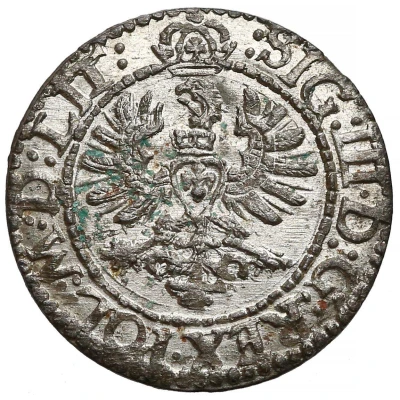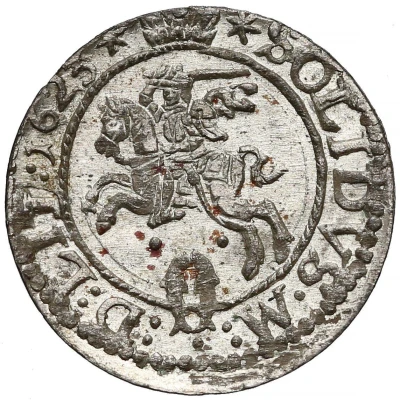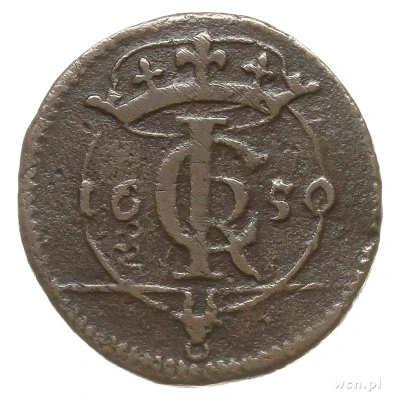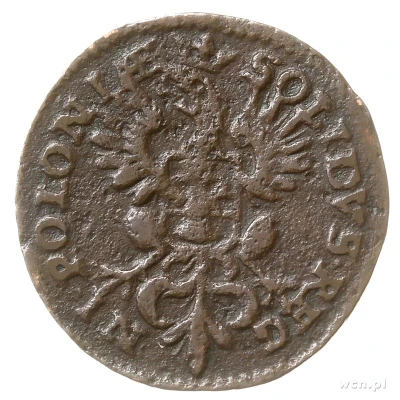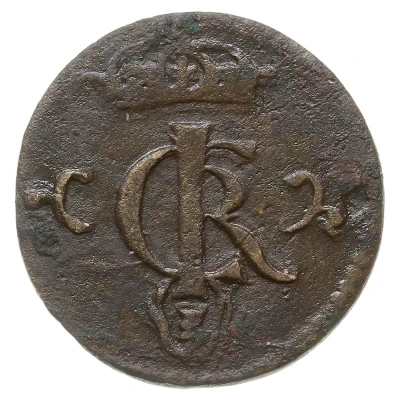
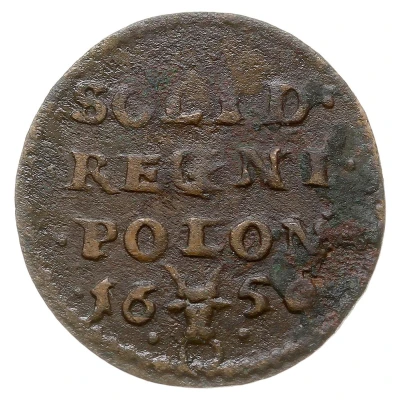

© Warszawskie Centrum Numizmatyczne s.j.
Schilling - Jan II Kazimierz Waza Wschowa
1650 year| Copper | - | - |
| Issuer | Polish–Lithuanian Commonwealth |
|---|---|
| King | John II Casimir Vasa (1649-1668) |
| Type | Standard circulation coin |
| Year | 1650 |
| Value | 1 Schilling (1 Szeląg) (1⁄90) |
| Currency | First Zloty (1573-1795) |
| Composition | Copper |
| Shape | Round |
| Demonetized | Yes |
| Updated | 2024-10-07 |
| Numista | N#96747 |
|---|---|
| Rarity index | 100% |
Reverse
Script: Latin
Comment
From:Type 1:
Type 2:
Type 3:
Personal observation by geraltttt82
Differences:
Type 1:
Type 2:
Type 3:
Interesting fact
The Schilling coin , which features Jan II Kazimierz Waza (Wschowa) and was minted in 1650, is a rare example of a coin that was issued during a time of great economic and political change in the Polish-Lithuanian Commonwealth. The coin was minted during the reign of King Jan II Kazimierz Waza, who ruled from 1648 to 1668 and was known for his efforts to modernize and strengthen the Commonwealth's economy and military. At the time, the Polish-Lithuanian Commonwealth was facing numerous challenges, including inflation, corruption, and foreign threats. Despite these challenges, the Commonwealth's economy continued to grow, and coins like the Schilling played an important role in facilitating trade and commerce. The fact that this coin was made of copper is also significant, as copper was a valuable resource at the time and was often used to mint coins. The use of copper in coinage was a common practice in many parts of Europe during this period, and it reflects the resourcefulness and ingenuity of the minting process during this time. Overall, the Schilling coin is a fascinating piece of history that provides a glimpse into the economic and political landscape of the Polish-Lithuanian Commonwealth during a time of great change and upheaval.
